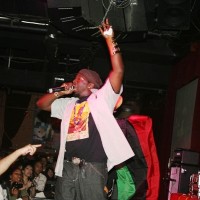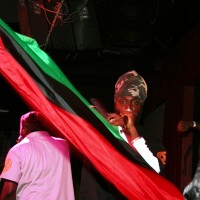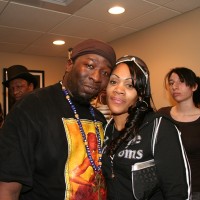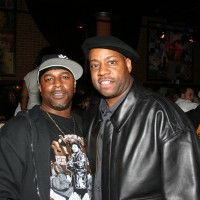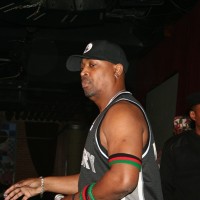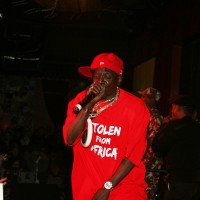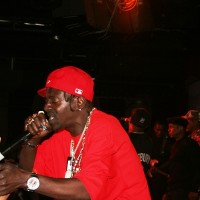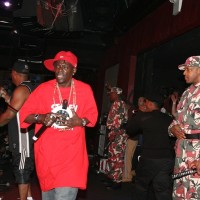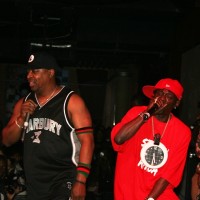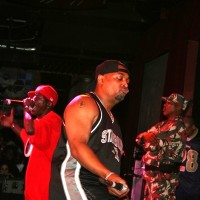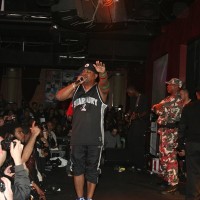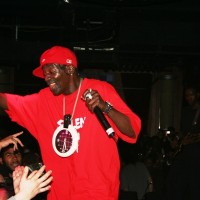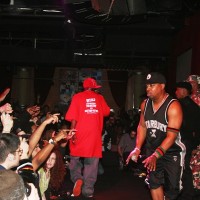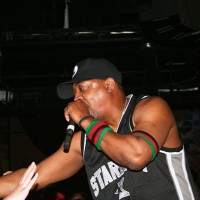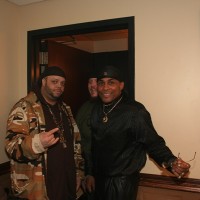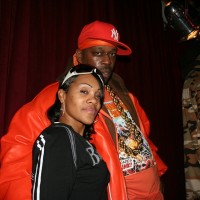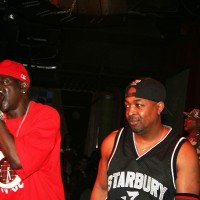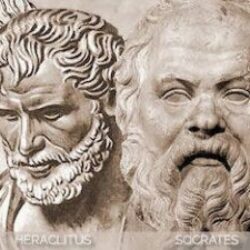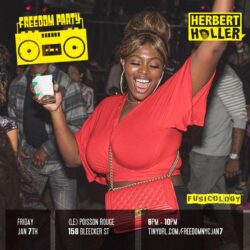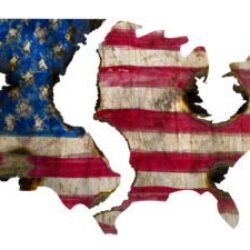Public Enemy is fighting a different kind of power nowadays
Went from yelling ‘black power’ to sniffing white powder. Powerful words from an honest song by a powerful MC. No, it wasn’t Dead Prez or Immortal Technique. It wasn’t Public Enemy or X-Clan either. It was Royce Da 5’9, a Detroit MC. What he said with those words must be in the minds of many people. What happened to the culture of Hip Hop? From the early stages of it there were block parties by Kool Herk and the teachings of Zulu Nation. Then it just all went awry. Representing for the people Hip Hop had no choice but talk about it all: the struggles and the violance and various attrocities of the hood. Yet it wasn’t even the gangbanging in the music of groups like MOP and Mobb Deep that turned Hip Hop into something else. It was BIG’s Versace suits that started the commercial trends. The imagery of wealth, power through easy money, easy women and fly clothing replaced the other hood symbols of power, like guns and the ruling posse. What happened to the original good intentions? They became a memory for some and vanished for most others. Today Hip Hop is associated with some of the filthiest trends: drugs, sex and money. How did that happen? Hip Hop gained commercial appeal and became a victim of its own success. People rushed to exploit the culture and turned it into something else. After all, talking about poverty and lack of education won’t help corporations sell clothing brands or alcohol labels.
Not all go the way of commercial recognition, like Lil’ Wayne, and rap about drugs, cheap women and fast cars. Some remained on the underground scene, unwilling (or perhaps unable) to compete with teenage dances derived from songs, like M1. Some, like David Banner, said that ‘America is sick’ and made songs that gained a lot of popularity, like Play, as well as Middle Finger, with Nas, that mostly got recognition from selected few who appreaciated the social injustice parts of it. Above all thou, when it comes to addressing social, political and economic issues and Afrocentrism, stands one band, Public Enemy. Even Flavor Flav’s Flavor of Love couldn’t hurt their image. From the 80’s, PE was on the forefront of controversy. All of a sudden Hip Hop music wasn’t just about having fun or telling the tales of the hood. Suddenly, thanks to PE, rap begun addressing much larger issues. With Chuck D. on the front lines political and social issues gave life to PE’s lyrics, which they begun to bring to numerous world tours before any other rap group or act. By all means, when it comes to creating controversy, there have been some questionable statements and lyrics too. While speaking up for the black people PE also had been guilty of anti-semitism and homophobia. While hate is always a negative way of thought, whether based on race, belief or anything else, there is no question that Public Enemy changed and continues to define the way Hip Hop comes across.
In March of 2009, at their favorite New York performance venue, BB King’s Blues Club, PE put on a 2-hour performance, in celebration of Flavor Flav’s 50th birthday. The sold-out show, as always, gathered the who is who of early stages of Hip Hop backstage, like Kool Herk and Original Spinderella, as well as filled the venue with the folk starving to get more out of Hip Hop than a teenage dance routine. For one night it seemed as if people actually cared about the lyrical content, standing proud and still having fun. Crew Grrl Order and other Chuck D.’s acts opened for PE. Then no matter what, the world’s greatest hypeman, Flavor Flav would never let a crowd get bored, while one of the greatest MCs of all time, Chuck D. fiercely encompasssed the fans into his words. Perhaps Royce Da 5’9 was being simply too pessimistic when he said that ‘could it be we wasn’t brought here to be free’. Or maybe it is just enough for every afrocentist to know that our President is black?..
Dmitriy Goldin


